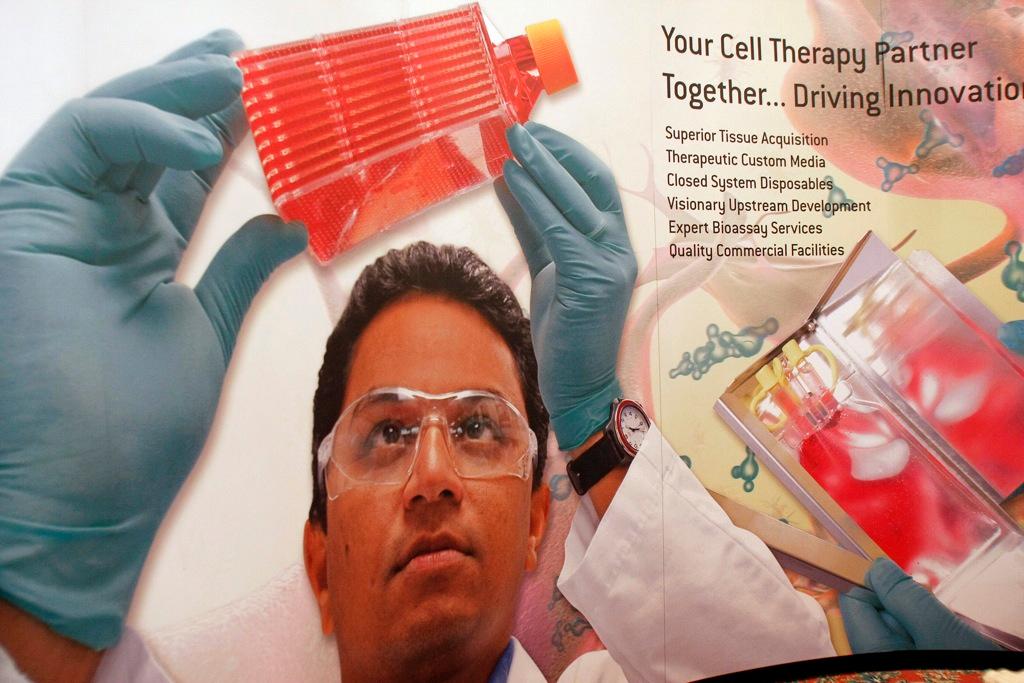EU stem cell patent ban is ‘unbelieveable setback’, say researchers
An exhibit at the 2010 World Stem Cell Summit in Detroit, Michigan. European scientists fear the EU’s ruling will American and Asian scientists to reap the financial benefits of their work.
Europe's highest court ruled on Tuesday that the stem cell research method developed by a German scientist could not be patented, Agence France Presse reports.
Professor Oliver Bruestle's procedure allows stem cells from human embryos to be converted into nerve cells, with potential applications for the treatment of Parkinson's disease.
But the EU Court of Justice ruled that:
"a process which involves removal of a stem cell from a human embryo at the blastocyst [early embryonic development] stage, entailing the destruction of that embryo, cannot be patented."
Judges referred to a European Union that prohibits any patents related to human embryos, Der Speigel explains. Their decision therefore means that any human ovum must be considered as an embryo as soon as fertilisation takes place.
More from GlobalPost: China inserting human stem cells in goats
Basic research will be allowed to continue, reports the Daily Mail, but without patents commercial development will no longer be financially viable.
The landmark ruling was hailed by Greenpeace, which brought the case against Bruestle's patent in Germany.
Spokesperson Christoph Then said:
"The court has said that ethics take priority over commercial interests."
Scientists, however, criticised the decision. Professor Bruestle called it "an unbelieveable setback for biomedical stem cell research", while Professor Austin Smith of Cambridge University's Wellcome Trust Centre for Stem Cell Research told the BBC:
"We are funded to do research for the public good, yet prevented from taking our discoveries to the marketplace where they could be developed into new medicines.
"One consequence is that the benefits of our research will be reaped in America and Asia."
More from GlobalPost: Costa Rica: no longer a destination for stem cell tourists?
The story you just read is accessible and free to all because thousands of listeners and readers contribute to our nonprofit newsroom. We go deep to bring you the human-centered international reporting that you know you can trust. To do this work and to do it well, we rely on the support of our listeners. If you appreciated our coverage this year, if there was a story that made you pause or a song that moved you, would you consider making a gift to sustain our work through 2024 and beyond?
